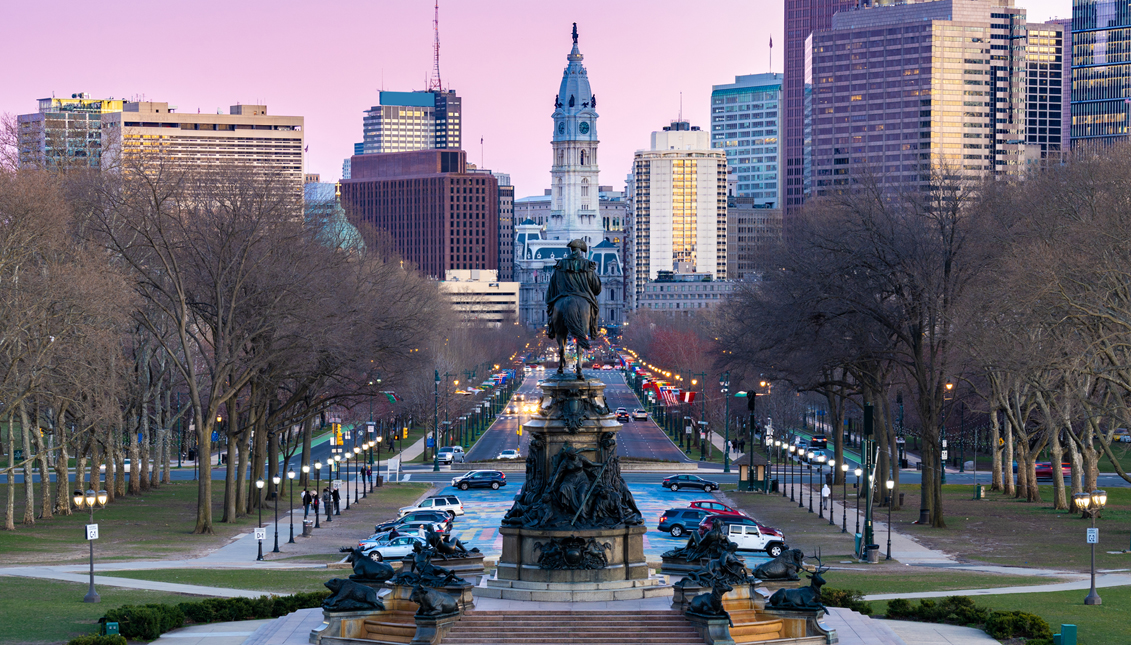
Urban heat in Philadelphia neighborhoods: Trouble for Black, Latinx residents
Extreme urban heat has a disproportionate impact on specific Philadelphia neighborhoods.
“In Philadelphia, your zip code determines your life expectancy, and heat is playing a more robust role in that reality.”
This was Councilwoman Katherine Gilmore Richardson, the youngest woman ever elected citywide, and the youngest Black woman ever elected to Philadelphia’s City Council.
On Wednesday, Sept. 23, the Trust for Public Land hosted a virtual event with Richardson, artist Eve Mosher, and Fairhill community organizer and Philly Boricua collaborator Charito Morales to discuss the issue of extreme urban heat, a dangerous effect of climate change that disproportionately impacts redlined neighborhoods.
Panelists discussed climate change in relation to the health of Philadelphia residents, the connection between urban heat and systemic inequality, civic-minded solutions, and how public art and community driven change can make an impact.
Morales, a prominent Latinx community member in Fairhill, explained a typical hot day in her neighborhood.
“It’s hot. Open fire hydrants. That, we do all the time. Children walking through the water area, people buying ice cream, finding shade however they can,” Morales said.
The parks also get overrun and barren during the day. Morales said people would normally find ways to cope by going to the library or pools, but amid COVID-19 , that wasn’t possible.
“And it was really hot, you know? And we need to address that issue. We need to create more sustainable communities and greenspaces into our communities because our people are low income,” she said.
The large Latinx community in Fairhill, Morales explained, is statistically, institutionally, and demographically underrepresented.
“Fairhill is my community, the community that I love. The community is so diverse, and so rich in culture, but we need resources, and for that we need to change and we need to continue working,” she said.
Morales remarked on the talented young people and children in her community that are motivated to be a part of the movement, saying they are the reason why it’s important to bring more resources to the neighborhoods of Kensington and Fairhill.
RELATED CONTENT
For Gilmore-Richardson, the experience recounted by Morales harkened back to the days of her mother’s move to North Philadelphia.
She moved there in the 1950s. Back then and even today, the block is all concrete with no trees in sight. But her mother's dream was to raise her family on a block with trees,greenspaces and parks.
After her parents got married in the 70’s, they moved across the street from the entrance to Smith Playground, and ultimately settled in Wynnfield.
“Wynnfield is a neighborhood with lots of trees and parks and we have access to Fairmont park also in our community,” said Gilmore-Richardson.
When she looked up the neighborhood’s heat index, it came back much cooler compared to the other neighborhoods where her family lived in North Philadelphia.
Richardson’s story illustrates her point: that unfortunately in this nation, your zip code determines your health. Even in other ways, COVID-19 showed how certain zip codes were hit the hardest.
“Extreme heat is already one of the leading causes of weather-related deaths in the United States, and as we see, as climate change makes our world hotter, entire swaths of the globe will be uninhabitable, so right here in Philadelphia we are already feeling the impacts of climate change,” Richardson continued.
“This isn’t an accident Black and Brown Philadelphians are redlined into specific areas and studies have shown and found that areas that were redlined are now facing the most pressing heat issues,” she said.










LEAVE A COMMENT: